#Lab Week
Explore tagged Tumblr posts
Text
It's lab week! This is one of the game prizes I made. 😁
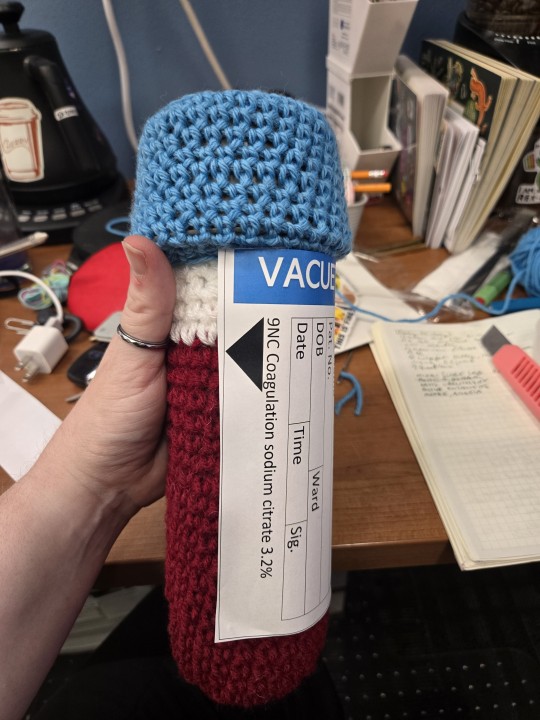
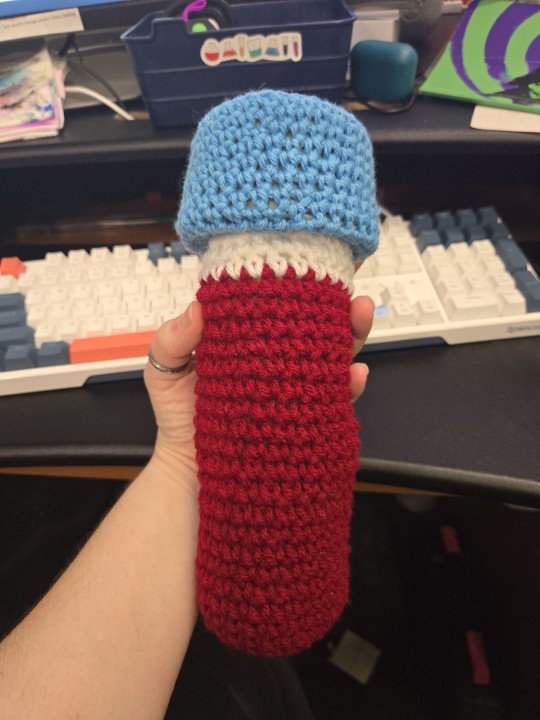
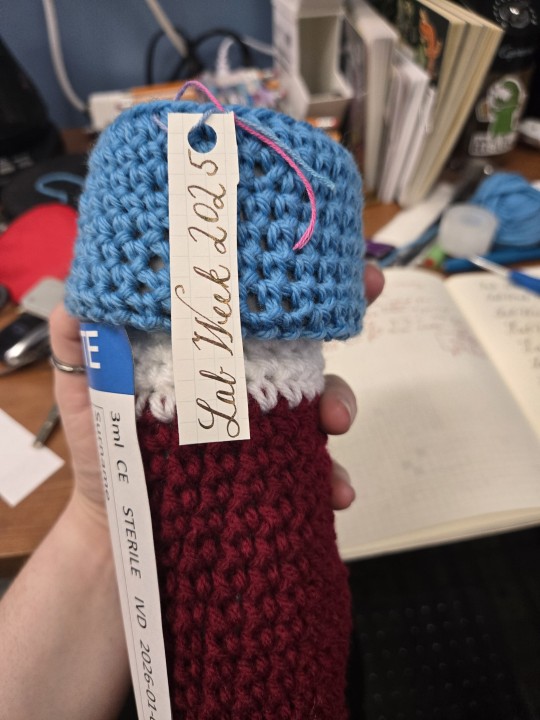
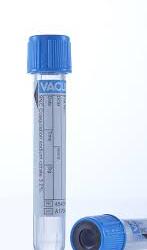
#medical laboratory science#lab week#medical lab scientist#medical lab technician#lab#mlt#mls#crochet
16 notes
·
View notes
Text
Last year on my other blog I did for MCR this year we have Fall Out Boy members as what department they would work at in the lab
Patrick: Molecular Diagnositcs. Not only is a department where his perfectionist personality could thrive. But it's also one of the more secluded departments so he wouldn't have to interact with as many people
Pete: Phlebotomy. He's very good with people, I feel like he could get a scared child to settle down in seconds that's nervous for a draw
Joe: Microbiology. It's where the people who like and have weird facts about everything are. Plus Joe strikes me as a bug girl.
Andy: Specimen processing. It's the department that is both the chillest and the most stressful, which it seems like drumming is. And I'd he cand handle the change of pace per song, and for each band he could definitely handle the ups and downs of spec proce.
20 notes
·
View notes
Text
If you saw me agreeing with being annoyed about wasted helium in a fictional context and were like "I bet she has some more helium based anger in her life" good news LAPD fucked up a raid on a medical facility they thought was a pot farm and flat out ruined thousands of gallons of the stuff.
#Back in the day the lab I worked in went through the stuff at a hell of a rate#But that was to actually do something at least#It's also fucking humiliating that a SF paper gets to write up our cops being dipshits#I am so fucking mad about both these aspects the wasted helium and that SF gets to laugh at us#I wrote a very very angry email to my city councilor but I do that like twice a week and I don't think he reads them or anything#So I suspect this one will also not move much
10K notes
·
View notes
Text
By now, there's lots of people have heard about the internal CDC memos for all newly prepared manuscripts (like future scientific papers waiting to be published):

There's so much to comment on, and I'm seeing it all right now. What the state of science is. What this means for the queer community. All of that.
But fuck, I think I might genuinely start crying over this. As a transgender biologist, this feels like a brutally personal blow. I slowly accepted my gender alongside my biology education. The more misinformation that was spewed about "biological sex" by mainstream media, the more my professors, colleagues, and primary sources would casually drop information that proved they have no idea what they're talking about. I'm not an expert on sex determination, gender, or transgender biology specifically by any means. But my worldview has been crafted by my studies in genetics and molecular biology.
Engaging with this research helped me demystify transition. It helped me optimize my transition. It helped me explain how HRT and other steps of trans healthcare work to other people. And it helped me overcome my own internalized transphobia, and finally start transitioning, despite knowing I wanted to since my preteen years.
Who knows how enforceable internal guidelines like this will be. But its certainly going to scare a lot of researchers away from transgender healthcare and science in the coming years, and that breaks my heart.
There's a lot I can say here, but fuck. I just needed to vent for a moment. Fuck.
#before this election#I had a backburner disillusionment with the current state of research and society#particularly in its impotence#climate scientists collecting data on a dying world and sending it to governments who do nothing#lab biologists generating more and more experimental data thats stifled from becoming real medical development by pharma and insurance#the events of the past couple of weeks have escalated that feeling a lot tbh#add it to the pile of reasons im leaving academia#i feel like i need to do SOMETHING with that feeling#but i dont know what#biology#transgender#trans#us politics
5K notes
·
View notes
Text

"Working in the clinical laboratory allows me to apply my passion for science and health care in a hands-on setting. Every test result we produce could potentially lead to the early detection of diseases, guide treatment decisions and ultimately improve patient outcomes. Knowing that our work contributes to the larger goal of providing quality healthcare is incredibly fulfilling."
Jingcai Wang, PhD, Assistant Director of Clinical Chemistry and Immunology, Department of Pathology and Laboratory Medicine
0 notes
Text
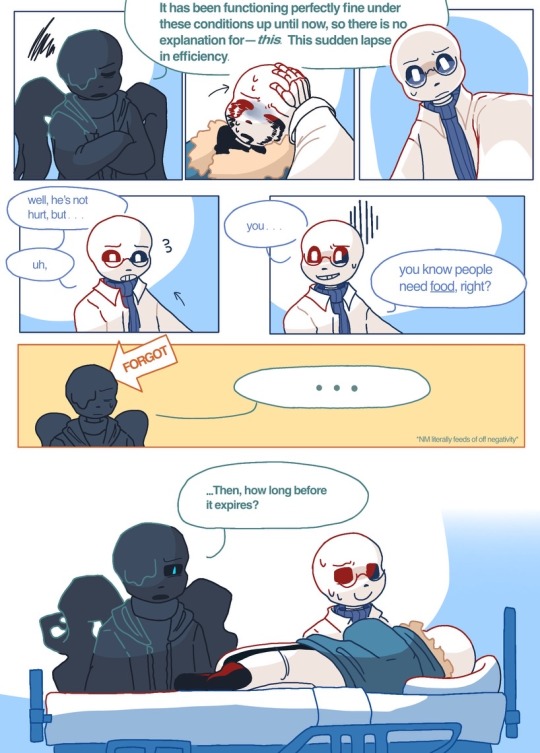
It’s NM’s first henchmen he can’t be expected to remember all that
#rip Sci the king of nightmares just broke into ur lab 💀#and threatened you to help this stranger#NM ordered him not to ‘complain’#or talk at all probably lmao#and killer just listened like ‘k guess I’ll just starve’’#this is after their first two weeks together 🥰#sci bouta have some ccrazy news for Ink#utmv#killer sans#undertale multiverse#undertale au#bad sanses#killersans#nightmare’s gang#in the making#ut something new#Something new sans#killertale sans#dreamtale nightmare#nightmare sans#Nightmare#science sans#sci#utmv comic#utmv fandom#utmv fanart
3K notes
·
View notes
Text

Actually, the bars aren't so bad anymore.
Think you can fix him? Read about his care instructions over at Tiger Tiger)
#Tiger Tiger#ludovica bonnaire#rakkatak ann#I thought I liked him (in a way he has a great design and is an effective antagonist) and *then* he licked the spit.#Now I need to create a lab to study him in. My god. He gives me hives. I need to see more of him NOW.#Something is wrong with him and it fascinates me.#He is everything I like in an antagonist. A little bit stupid and unintentionally funny while being a genuine threat.#I call him rat man they way I want to see him skitter around on the floor.#Call him rat man the way he might need a little cheerio snack and some enrichment.#I am so...so tired and I am struggling to keep the jokes train going.#Please continue to read Tiger Tiger! Every new reader fuels my energy gauge.#Sorry I've been missing so many days of posting. I'll try to make up with some extra posts this week!
2K notes
·
View notes
Text
thinking about how the extra area added on to a pacifist run of undertale, the true lab, is about alphys's past mistakes. how it ends with the story reaffirming that, despite the pain she's caused, the thing that matters is that she has now made the choice to do the right thing. she's still worthy of her friends' love.
thinking about how undertale doesn't expect the player to get a pacifist ending for the first time. how it's more likely than not that the player will kill toriel the first time they battle her, how lots of players don't initially figure out how to end undyne's fight without killing her, etc. what it expects — not even expects, really, but hopes — is that the player, if they care enough, will use their canonically acknowledged power over time to make up for those mistakes.
no matter how many neutral runs a player has done before committing to the pacifist run, the thing that matters to the characters, to the story, is that you've chosen, now, to do the right thing.
compared to alphys, the player honestly gets off lightly, in that you're the only one (other than flowey) who really remembers any harm you might have caused. and any direct guilting the game could have done about it is long past at this point. instead, as undertale often does, it makes its point via parallels: alphys caused harm, and she knows it. she has committed to being better. in doing so, she has unlocked for herself a better ending to her story. and she deserves it. she's forgiven.
those structural narrative parallels are all over undertale, if you know where to look. and that's one of the things that makes it so fuckin' good.
#undertale#alphys#true lab#this inspired by a mutual's alphys posting#and a discord convo i had a couple weeks back about ut's stance on ''punishing'' the player vs the monsters for their actions#and thoughts i've had generally post a certain fangame with a color in its name about just how well ut is structured as a narrative#everyone rightfully praises toby fox's character writing but stuff like this i think flies under the radar a bit by comparison#and it deserves to be appreciated#there's obvious Lore reasons why the true lab is only visited in a pacifist run (what's revealed about chara and flowey)#but this is the other half of it: the message of alphys's story hits hardest on a paci route post neutral runs#toby fox is a good writer more often than not
4K notes
·
View notes
Note
Happy lab week!! Love the crochet coag tube!! I would absolutely be fighting for it, if it were a prize in my lab 😍
Hope you have lots of fun celebrating, and feel all the well-deserved lab appreciation!!
Thanks anon! The prize winner correctly guessed how many draws our phlebotomy team performed the day prior (actual 429, she guessed 421) Happy lab week to you too! May all your blue tops be adequately filled! 💙
1 note
·
View note
Text
Invasive Species and Xenophobia
Invasive species are complicated! People have a lot of feelings about them, positive and negative. Are plants that move "invaders" "colonizing", "immigrants", "citizens"? What does it mean to kill species that are from somewhere else? What if that species legitimately makes a poor neighbor and causes extinctions in other, native species? This complex, culturally-loaded issue is a foundational issue behind a lot of plant conservation and restoration.
This is a juicy and still actively disputed topic! The Guardian recently had a big article on colonialism in Botany, (tbh her views are dated and reductive, imo) and it’s come up again this week, to much hostility (cw: reddit). Yes, my region's native plant restoration came from literal nazis, but also, the impacts of some invasive species are real, not figments of a racist imagination. How do we balance these issues? What does ethical invasive management look like?
Since it’s such a juicy topic, I wanted to offer a few fun readings to share:
The Native Plant Enthusiasm: Ecological Panacea or Xenophobia?, Gert Gröning and Joachim Wolschke-Bulmahn, 2004, Arnoldia.
THE CLASSIC 20th century German nazis and native plants paper. Made a huge splash when it came out, and you will still encounter people who paint all native plant stuff with this brush. Summary: yeah the nazis loved their native plants and used them as part of their conquering process. Also, the first prairie plantings ever, located in Chicago, were done by a racist probable-nazi for racist reasons, full stop. I’ll let him speak for himself: “The gardens that I created myself shall… be in harmony with their landscape environment and the racial characteristics of its inhabitants. They shall express the spirit of America and therefore shall be free of foreign character as far as possible… the Latin and the Oriental crept and creeps more and more over our land, coming from the South, which is settled by Latin people, and also from other centers of mixed masses of immigrants. The Germanic character of our race, of our cities and settlements was overgrown by foreign character. The Latin spirit has spoiled a lot and still spoils things every day.” - Jens Jensen
Botanical decolonization: rethinking native plants, Tomaz Mastnak, 2014, Environment and Planning D: Society and Space
Rather than viewing native plant plantings as an act of racially-pure occupation, Mastnak positions native plants in California as a decolonization of the sub/urban lawn. Uses a lot of quotations from 16th century English philosopher Francis Bacon, and is heavy on the philosophical musings.
From killing lists to healthy country: Aboriginal approaches to weed control in the Kimberley, Western Australia by Bach et al., 2019, Journal of Environmental Management.
This paper talks through some of the native vs invasive debate, and offers a different perspective on how to approach to plant invasive management based on cultural relations, rather than country of origin or behavior.
Beyond ‘Native V. Alien’: Critiques of the Native/alien Paradigm in the Anthropocene, and Their Implications, Charles R. Warren, 2021, Ethics, Policy, & Environment
DENSE but thorough, if you want to follow the entire history of the native/invasive debate, this has you covered. The most interesting stuff, in my opinion, is the discussion of invasive denialism, IE: the impasse of “You’re just being racist!” Vs “You know nothing about ecology!” I recommend the Discussion, which starts on page 13.
#invasive species#native plants#ecology#history#i had to put a reading list together for lab this week#so you get to reap the benefits#the children yearn for the mines#except its me#the research scientist yearns for the syllabi mines
650 notes
·
View notes
Text
**URGENT** HELP SAVE THE USGS BEE LAB!
PLEASE circulate this as widely as possible, as soon as possible.
Hi all, you may not know me but I am a native bee researcher in the eastern US. People like me work to study and protect the 3600 species of native bees in North America, many of which are in severe decline.
We just received devastating news, that unfortunately was not surprising. The Trump administration's proposed 2026 budget is set to defund most of the ecological research happening at the USGS, and that includes zeroing out the budget for the USGS Native Bee Inventory & Monitoring Lab.
Don't know them? Maybe you've seen stunning photos like this:
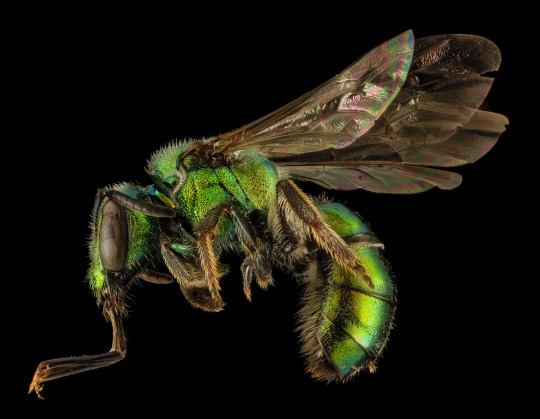
These gorgeous and evocative focus-stacked photos of native bees on black backgrounds - all of which are public domain - come from the USGS Bee Lab (here's their Flickr). Through these, they've helped bring the beauty and importance of native bees to the public's attention. Hundreds if not thousands of news articles, videos, and publications use these photos.
But that is just one tiny slice of what the USGS Bee Lab does for pollinator conservation. Its primary role is much bigger; they provide technical support, research collaborations, and financial & grant partnerships to federal and state agencies, academic institutions and researchers, and much more, so we can study, manage, and protect North America's wild pollinators. They conduct research of their own that has led to species rediscoveries, and produce invaluable resources that have greatly advanced our understanding of wild bees and our approaches to studying and conserving them. They also provide the essential and irreplaceable service of bee identification. For those who don't know, identifying bees is hard. Sometimes Really Hard. And this lab is one of just a handful of places in the entire country who can identify some of the toughest groups of bees, and who sit on the forefront of breakthroughs on taxonomy and identification that the rest of us in this field rely on. Without this service, agencies and researchers trying to survey and monitor bees in order to track population declines, manage land, and get policy changed are stuck with a lot of nameless bees, severely limiting the usefulness of that data.
Tens of thousands, if not hundreds of thousands, of bee specimens pass through this lab annually, plus the thousands in permanent storage, from long-term monitoring efforts by state and federal agencies, and researchers like myself. They operate at a greater capacity than basically any other institution doing this kind of work. Few if any bee researchers in the eastern US, or even the country, have not benefitted from this lab's work, and those benefits are passed on to you through being able to protect pollinators and the services they provide both in agriculture and ecosystems.
This lab is headed up by scientist Sam Droege, who has dedicated decades of his life to this cause, and whom I consider not just a research partner but, humbly, a friend. I am utterly indebted to him for helping me get my start in this field, and for the support and kindness he has shown me and every other young professional who is passionate about pollinators. The Lab operates with an insanely small budget already, and a very limited staff, yet the impact they have is exponentially outsized. Losing the USGS Bee Lab would be a devastating blow to pollinator conservation in this country, at a time when native bee species are sitting on the precipice, and sustainable agriculture is non-negotiable for our future.
You can read more about the Bee Lab here. The Lab is not well-publicized, but it's a lifeline for the many dedicated people who work to try and protect pollinators and the environment at large.
SO WHAT CAN YOU DO?
Sam Droege has sent out a request for help, and has encouraged us to post on social media. This is what he wants you to do to help us save the Bee Lab.
This is verbatim:
What is Happening: · The USGS Bee Lab is at risk of being permanently closed due to cuts in the 2026 Federal Budget and looming federal RIF’s · Specifically, the Ecosystem Mission Area (EMA) budget, which funds the USGS Bee Lab and the Eastern Ecological Science center has been zeroed out · Thousands of layoffs to hit Interior, National Parks imminently - Government Executive What you can do · Write to your representatives, the White House, and the Department of the Interior that they should restore the funding for the USGS Bee Lab · Send digital or physical letters, write emails, post to social media What you should be highlighting: · Personal anecdotes about how the Bee Lab has impacted you or your organization · How important the research the Bee Lab is conducting is to your state Contact Information: 1. Representatives: Find Your Representative | house.gov 2. Senators: U.S. Senate: Contacting U.S. Senators 3. White House: Contact Us – The White House 4. Interior: [email protected] Send a copy of the letter to [email protected] Pass this email around. Post your response to social media
IT'S OK if you are not a scientist and have not directly interacted with the Bee Lab. Have you seen the lab's photos? Are you concerned about native pollinator declines? Are you aware of any pollinator conservation initiatives or policies in your own state - those almost certainly have drawn, directly or indirectly, from work the Lab has done. Speak about American food production and agriculture, how the Lab's research and collaborations are essential to safeguarding pollination services (this might help reach across the aisle).
Sam urges that these letters, emails, phone calls, etc, must happen quickly - within the next couple days. This information went out on May 8th and that is the day I am posting this. So please, don't wait.
If 'save the bees' has ever meant anything to you, this is the agency that is playing one of the biggest roles in this country in making that happen. Please, contact your representatives, and pass this call to action along however you can. Thank you.
#bees#native bees#pollinators#native pollinators#save the bees#usgs bee lab#usgs native bee inventory and monitoring lab#yes sam put his email out there so i'm going to post it as is#i just visited the lab in person a couple weeks ago and they're scrambling to get bee specimens in storage and out the door#i had that sinking feeling that i had to get my bees identified as soon as possible or i might not get the chance and here we are#i told him I'd help him in whatever way I can and so for his sake and mine please help us.#if you're a science blog and follow me PLEASE spread this around#time is of the essence. post on other platforms.#want something specific to mention? they rediscovered the chestnut mining bee. there's a smithsonian article that just came out#all about that. so you know. that was KIND OF A BIG DEAL#they also literally developed THE standardized protocol for bee monitoring. used by federal agencies and researchers alike.#THEY ARE THE BEE PEOPLE. THE BEEPLE. THE GOAT. THE OG
539 notes
·
View notes
Text
i try not to get political on this blog, as it is in the end a naruto blog. however im not sure how aware of this the average person is. right now is a REALLY bad time to be a scientist in the US. a lot of grants and funding mechanisms are being canceled with no warning or real explanation, there are freezes on awarding or paying out grants, and there's hiring freezes both in academia and industry. this is includes retroactively cancelling ongoing grants for vague reasons like no longer being in line with the current administration, something which afaik has never really been done at this scale before. talking to scientist friends these past months has just been a wave of stories about early career scientists losing funding (that means for most people, losing their JOB) with no real hope for securing a new one. the proposed 2026 budget will massively cut money to the NIH and NSF (the two biggest funding agencies for biology). no one really knows what is going on, and the tone of most discussions for future planning are uncertain, deeply stressed, and afraid.
some of the end results of this are obvious. the US is a powerhouse for science and research (i've mentioned this a couple times-- i have looked into moving abroad more than once but the opportunities in the US for my field are (were) simply way better career-wise), and shutting down research means cutting research that's immediately applicable to human and environmental health that will have a global effect. it also slows basic research with less immediate application to the average joe, but which builds the foundations of knowledge to be able to do that more applied research and development. science, tech, and higher education is also one of our biggest exports, so this dismantling of research will hurt the economy even more.
some results will be less obvious. a lot of very educated people are about to lose their jobs. i've read a lot of anxiety from early career people about the market being flooded and over competitive, so entry-level positions are not obtainable by entry-level people, essentially pushing them out of science and creating a situation where "the next generation" is cut at its knees. i've seen anxiety about this from people in other countries because academics are, compared to other demographics in the US, pretty likely to look into moving abroad, and also talented scientists from outside the US who might have wanted to move there for career purposes are more likely to stay in their home countries or look into other countries, making those job markets worse. i've even gotten some targeted ads about moving to scandinavia. making the job market more competitive doesn't help anyone-- it means fewer opportunities for good scientists to do good research. also, building up a destroyed system is always harder and longer than tearing it down. if things continue like this, the damage will take decades to repair. that's decades of stagnated research and development with international impact.
so. i don't know. call your reps and ask them to stand up for science. give your local scientist a hug. and let me know if you know any european labs hiring for 2026
#that last part is mostly a joke#i've had a few panic attacks over this but this week my boss announced she is a cockroach and her lab will survive anything#and i am the third person in charge of her favorite project and the first to push it forward. so i hope i am safe short term#but the outlook is bleak folks
365 notes
·
View notes
Text

Rewatching Arcane - so here's an attempt at drawing Viktor
#my art#this is an incredibly messy attempt but still- I will tag#arcane#viktor arcane#league of legends#I'm tired from being in the lab the past week and I'm passing it to him#I miss him :'( and Silco as well#this year has been a weird one for me - 2020-2023?? ONLY OC ART#this year tho?? gently stuffing sporadic fanart under peoples doors
808 notes
·
View notes
Note
fiddauthor kissing (very orginal)

HI BELLS :3‼️‼️‼️‼️🩷🩷🩷🩷
waow howd u come up with a concept that orignal.....you must be some kind of genius or something......
#you my friend are the brave soldier getting used as my fiddleford friday post🫡#(because i was dying too much this week to come up with my own art ideas LOL)#(thank u bells for ur brave sacrifice 🫡)#anyways booooo make these nerds get a room🍅🍅🍅🍅#< (guys who are in the secret basement of their secret lab in the middle of nowhere)#gravity falls#fiddauthor#stanford pines#ford pines#stanford filbrick pines#young ford pines#fiddleford mcgucket#fiddleford hadron mcgucket#fiddleford#fiddleford friday#fiddleauthor#i think i also went a lil too hard on this...... maybe.........#for a request atleast#its okay its for my friend so its awesome to do this i think#my mail
461 notes
·
View notes
Text
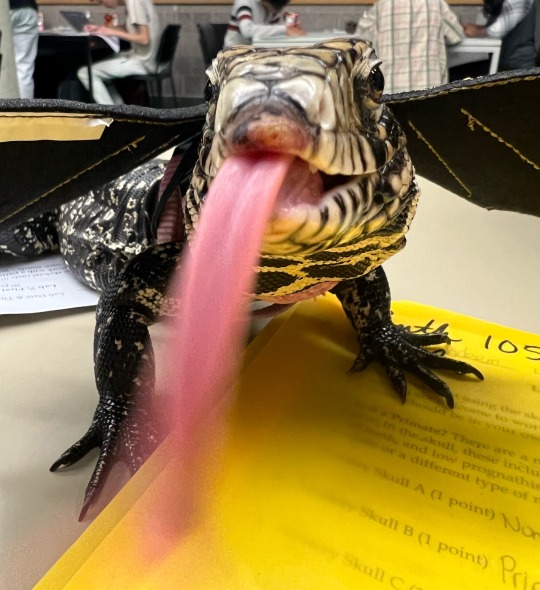

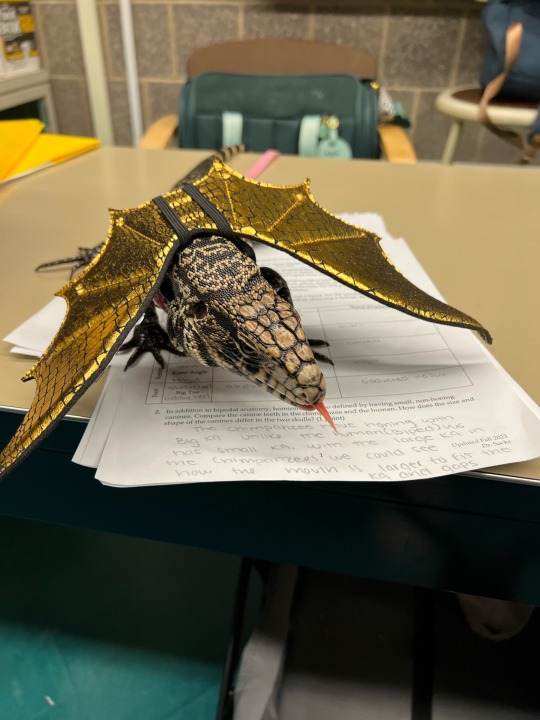
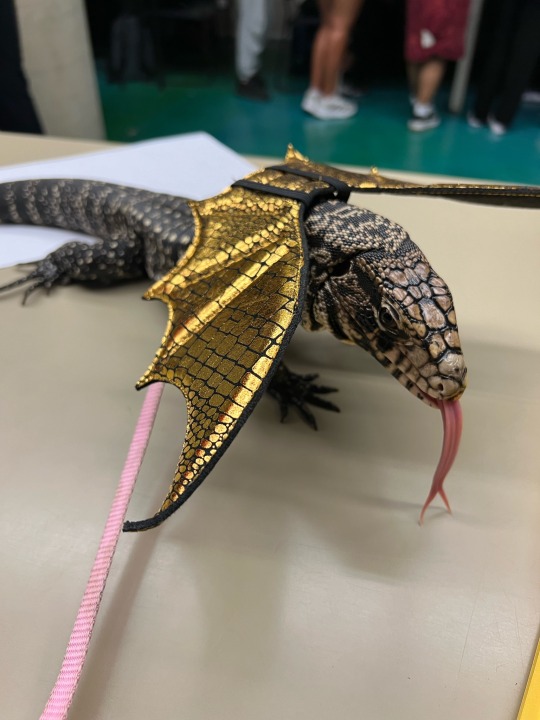
A fierce dragon guards the student papers. To turn in your lab, you must pay her homage! (Homage can be paid in the form of chin or head scritches, thank you.)
#reptile#lizard#tegu#reptiblr#Nakajima#this isn't her actual Halloween costume but we don't have lab next week so we did this
429 notes
·
View notes
Text




4 MINUTES (2024) GREAT & TYME I Yin & Yang ☯︎
#they're color coordinated.... great wears mostly white and tyme wears black under his lab coat!!!!#costume departement I SEE YOU#4 minutes#4 minutes the series#jes jespipat#bible wichapas#tyme x great#userfaiza#uservix#userrlaura#greattyme#great x tyme#bl series#thai bl#it's clearly a play with contrast - great is rich and spoiled and tyme is struggling but hard working.... IM FUCKING SEATED#plus they literally just had 4 seconds together on screen and they're already showing these bitches how it's done#also what do you mean i have to wait A WEEK for next episode#couldn't they have released two episodes COME ONE#mywork
757 notes
·
View notes